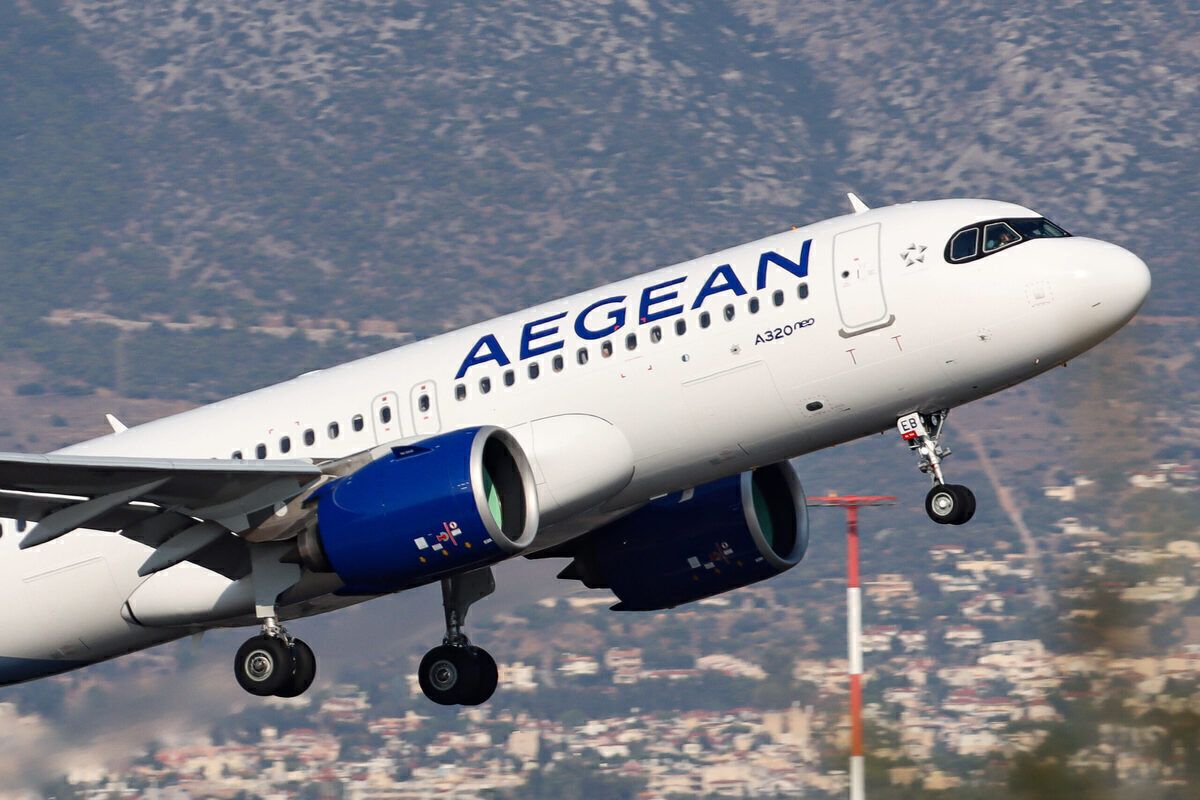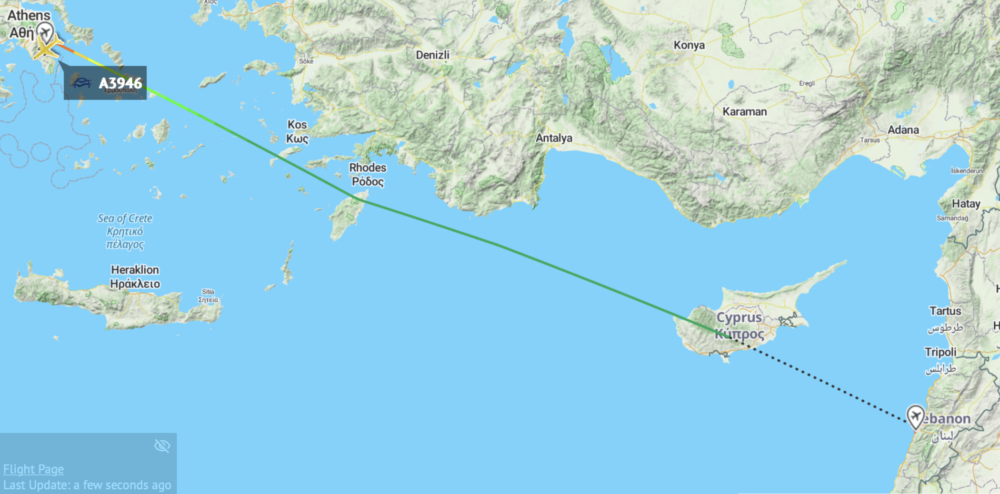On January 15th, Greek carrier Aegean announced that it had temporarily suspended its service to Beirut, having done so since January 11th. The airline cites "external damage" that was identified by ground staff at the city's Rafic Hariri International Airport on January 10th.
Athens-Beirut service suspended
Aegean's Athens-Beirut service is suspended indefinitely while it investigates the cause of damage one of its aircraft incurred while at Rafic Hariri International Airport in Beirut.
Identified by ground staff at Beirut airport, the damage was discovered "on the outside fuselage of the aircraft" that operated a flight on January 10th. On the same day, Aegean stated that it informed Greek authorities as well as airport authorities in Beirut.
The service in question is the flight pair A3496/A3947. As a result, the very last flight of this route operated was A3947 last Monday. This was conducted using an Airbus A320 registered SX-DNE. This particular aircraft appears to have operated a flight the very next morning, indicating that whatever damage detected may not have been too serious. The A320 has operated as many as six flights per day since January 10th.
As far as Aegean's service is concerned, "reinstatement of flight schedule will be announced in the coming weeks". The carrier has informed all affected passengers that they have the ability to cancel their future flights (presumably free of charge) or rebook for a future date. Customers can also receive a credit voucher of the same value.
Was a stray bullet to blame?
Reporting by Reuters notes that Lebanon's transport ministry has dismissed suggestions by social media and other media that a bullet was to blame. Reuters also reports that correspondence published by Lebanon's Transport and Public Works Minister has stated, "After close examination, it was determined that it was not the result of a bullet." But of all the possibilities that could explain the cause of damage, why would a bullet be one of the first suspicions?
That's because stray bullets have damaged aircraft at the airport before. Indeed it was just over a year ago that engineers found four MEA aircraft were damaged by stray bullets fired during New Years' celebrations.
"In Lebanon, one starts a new year by assessing damages caused by heavy showers of stray bullets shot mindlessly the night before," Souad Lazkani of The 961 wrote in their report. Indeed, this practice has also been responsible for injuring both adults and children, resulting in death in some cases. This has continued despite an official decision against the practice.
Thus, while it would make sense for a bullet from celebratory New Year gunfire to cause external damage on January 1st, it might not be the case some 10 days into the New Year, in the case of Aegean. At the same time, however, the fact that damage incurred has prompted a full-service suspension by Aegean points to something fairly serious. Hopefully, more details will be released in the near future.
If not a bullet, what do you think would be serious enough to prompt a service suspension by Aegean? Let us know in the comments.


